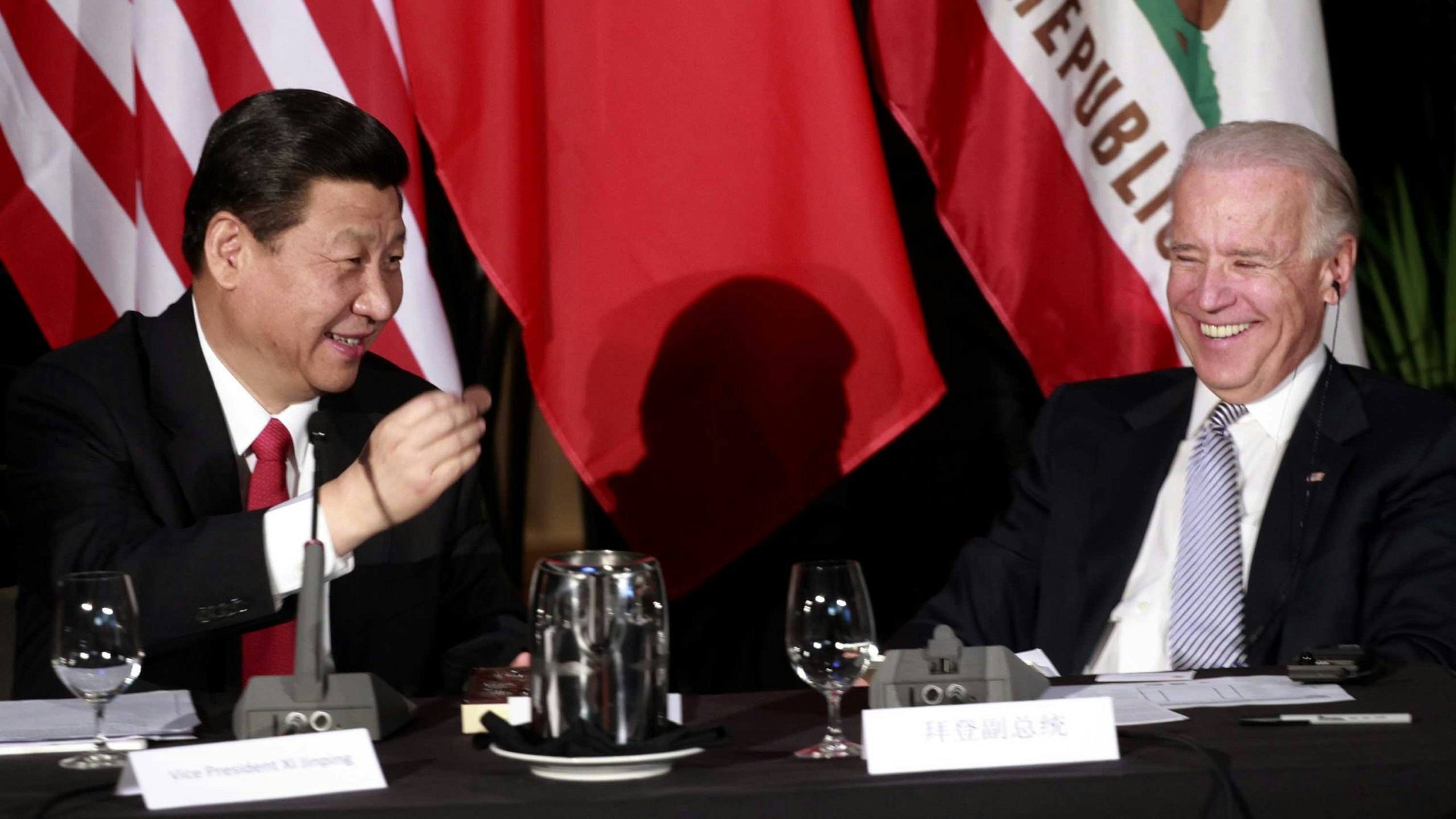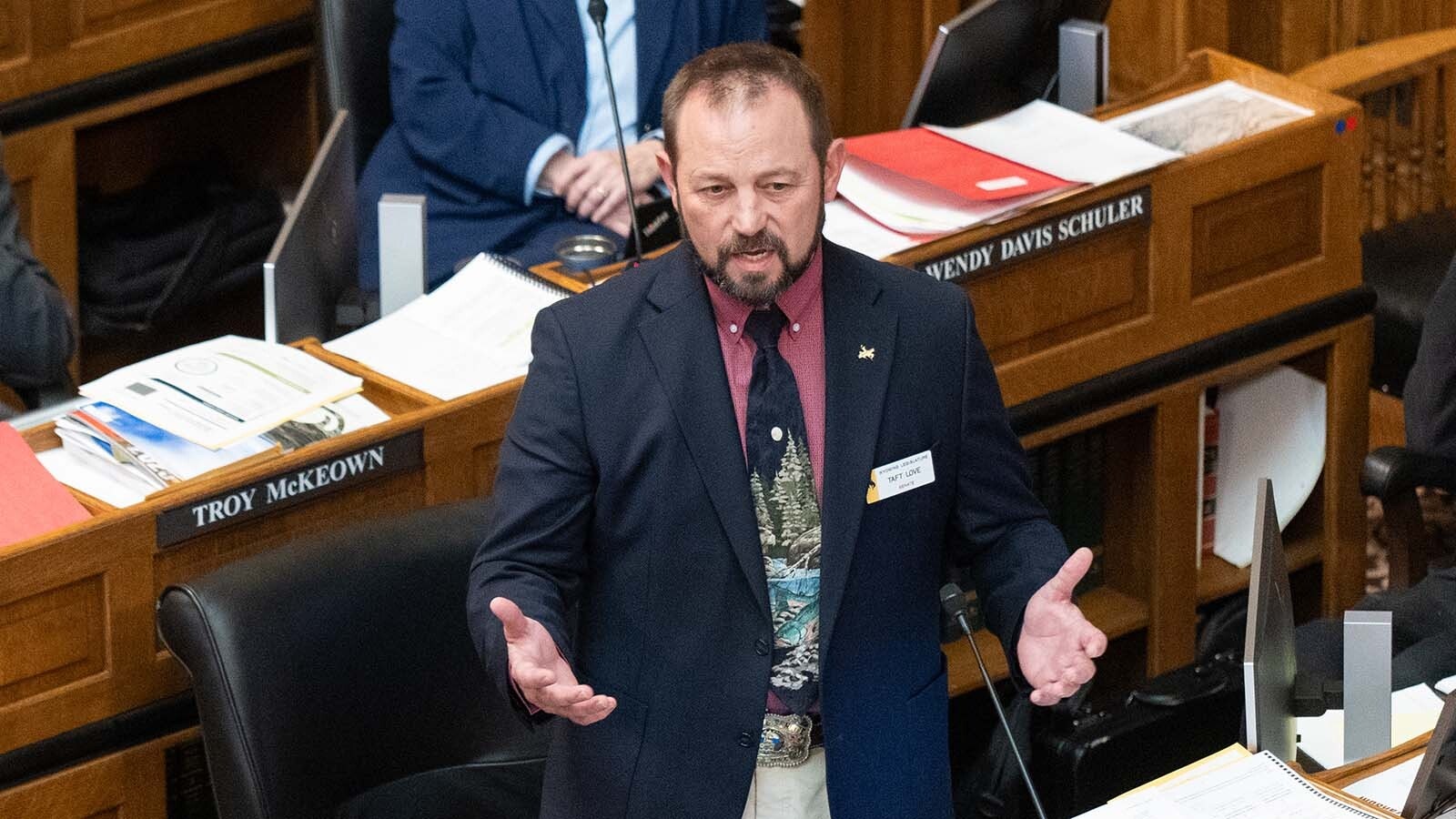Another company with strong ties to China received money from the Biden administration’s Department of Energy as part of its green energy push.
It’s the third known incident in which the DOE gave money to a company tied to China or supporting technology that ended up in Chinese hands. And that has upset Wyoming’s senior senator John Barrasso.
Red Energy Projects
The Washington Free Beacon reported this month that carbon recycling company LanzaTech received more than $10 million in grant money from the Biden administration since April 2021 in support of green energy projects.
The company is partnered with a clean energy investment subsidiary of the Sinopec Group, an oil conglomerate owned by the Chinese state.
Bo Ren, Sinopec’s managing director and a LanzaTech board member, graduated from a Chinese university and is on a U.S. trade blacklist for stealing American trade secrets, the Free Beacon reports.
According to the company’s website, LanzaTech is developing carbon recycling technology that converts pollution into fuels and chemicals using bacteria. The company opened its third plant in China this year.
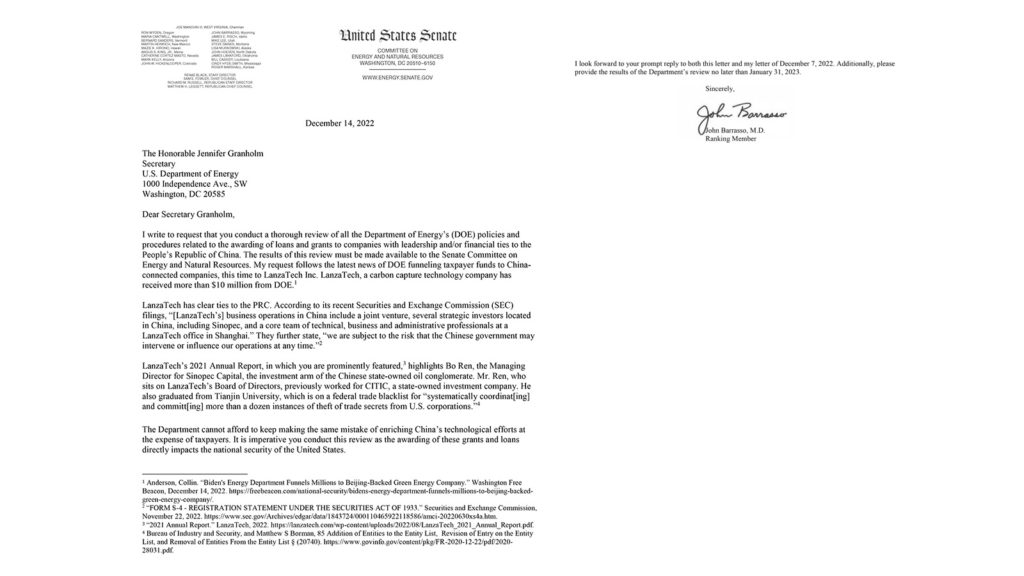
Clear Ties
U.S. Sen. John Barrasso, R-Wyoming, ranking member of the Senate Committee on Energy and Natural Resources, has been demanding answers from Department of Energy Secretary Jennifer Granholm regarding the department’s policy and procedures related to the awarding of grants and loans.
In a Dec. 14 letter to Granholm, Barrasso stated that LanzaTech has “clear ties” to the PRC, which are backed up by the company’s filings with the Security and Exchange Commission.
“We are subject to the risk that the Chinese government may intervene or influence our operations at any time,” LanzaTech’s filings state.
In the letter, Barrasso requests a review of the department’s policies and procedures that describes in detail the security review process for entities receiving taxpayer money, as well as remedial measures the department would take when companies are found to be tied to “a country of particular concern.”
Barrasso’s office told Cowboy State Daily that as of Friday, it had not received any response from the DOE.
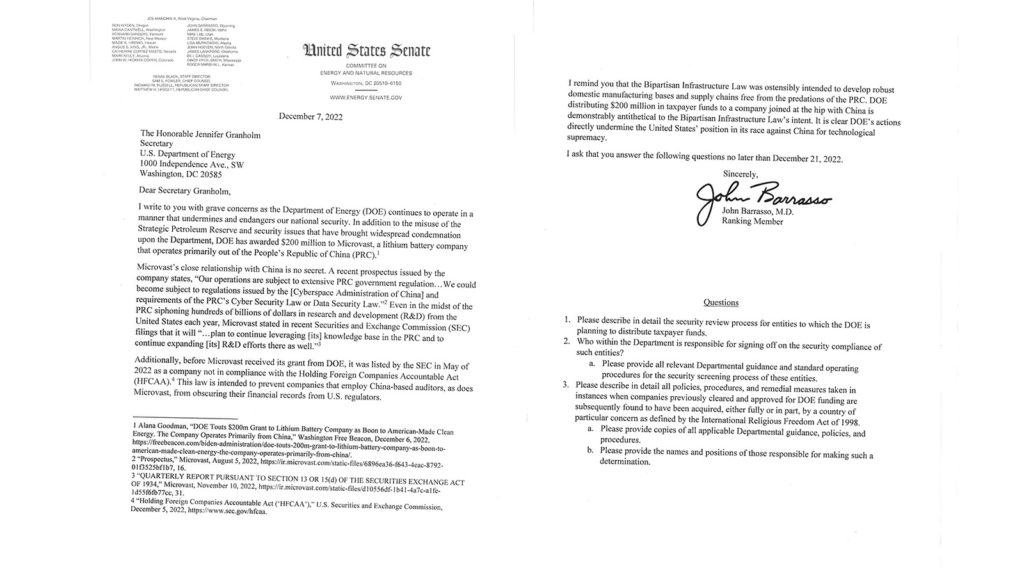
Ongoing Problem
This was not the first time the Biden administration was found to be funneling taxpayer money to companies with ties to China.
The Free Beacon reported earlier this month that the DOE provided Microvast Holdings, a lithium battery company, $200 million to build a battery separator facility in Tennessee.
The company’s financial records show that Microvast operates primarily out of China.
The money came from the Bipartisan Infrastructure Law and was intended to counter China’s control of the global lithium-ion battery supply chain.
Following the Free Beacon’s report, Barrasso -Wyoming wrote to Granholm again, requesting a review of the department’s policies in granting awards.
Barrasso never received a response to that letter either.
Former Energy Secretary Rick Perry, who served in the position prior to Granholm, told Fox News Sunday Morning Futures that his successor should face congressional investigations over the Microvast funding, which he predicts will lead to her resignation.
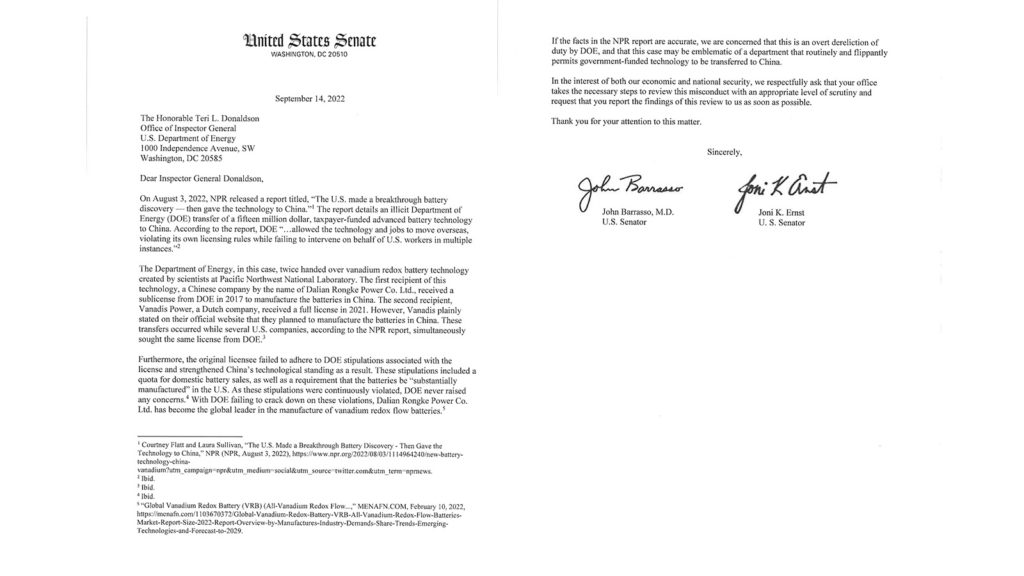
A Third Incident
In September, Barrasso and Sen. Joni Ernst, R-Iowa, sent a letter to the Department of Energy Inspector General Teri Donaldson after a report revealed that the DEO illegally sent $15 million worth of taxpayer-funded advanced battery technology to China.
The engineers working at a government lab in Washington helped design a vanadium redox flow battery. NPR reported the batteries are the size of a refrigerator and hold enough energy to power a house.
After shuttering its warehouse in Washington, the company, with the permission of the DOE, moved its manufacturing operation to China.
“In the interest of both our economic and national security, we respectfully ask that your office takes the necessary steps to review this misconduct with an appropriate level of scrutiny and request that you report the findings of this review to us as soon as possible,” the senators’ letter says.
They never received a reply.

